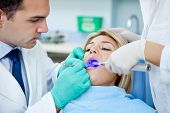How to take care of your teeth and gums – Pay attention to your gum health, cavities, bleeding gums, tartar, plague, flossing and bad breath. Best ways to take proper care of your teeth explained
How to take care of your teeth and gums !
The modern mouth basically exists in a permanent disease state. The most frequently encountered gum problems are bleeding and soreness of gums (especially while brushing) with more than 80% people facing the issue at least once in 6 months.
Disturbingly, the survey results also indicate that these symptoms are not considered serious enough by most people. Only 43% of those suffering from gum bleeding actually consult a dentist, while more than 35% opt for home remedies like rinsing with warm water and applying clove and salt.
As much as we hate going to the dentist, nobody likes to lose their teeth. Nothing mars a person’s visage as much as a couple of missing canines or a receding gum line.
Why do cavities happen?
Cavities or caries are decayed areas in the teeth, the result of a process that gradually dissolves a tooth’s hard outer surface and progress towards to interior.
Teeth are protected from decay by a thin layer of calcified substance called enamel, which is the hardest substance in the whole body-so hard that if you were to strike it with steel, it would spark.
Because enamel is not alive, it is the only part of the body that cannot repair itself, but is designed to last a lifetime. Disease, accidents and poor dental regimes are reasons that we lose them.
Together with the common cold it is the most ubiquitous human afflication. A suspectible tooth has relatively little protective fluoride compounded into the enamel and has pronounced pits, grooves or fissures that retain plaque.
A cavity needs to be treated before it starts to hurt as it could progress to Pulpitis, a painful inflammation of the tooth pulp, the innermost part of the tooth that contains the nerves and blood supply.
Severe inflammation kills the pulp and needs extensive treatment. Untreated you can say goodbye to a tooth.
Why do gums bleed?
It’s a sign of gingivitis or gum disease. The tell tale sign-shallow V-shaped open pockets between the teeth and gums that attract food deposits like magnets and promote plaque and tartar formation.
When this phenomenon is not arrested the gums become red, swollen and bleed easily. There’s very little pain in the early stages, and may pass by unnoticed.
If you ignore the ominous signs, the destruction of gum tissue progresses to peridonitis, a more severe disease which causes teeth to fall out s it loses gum support.
Once again the culprits are inadequate or improper brushing and flossing. Oral health is very important and critical for overall well-being. Research has shown that gum problems are the most frequent, yet most ignored aspect of oral health.
Lack of timely dental intervention makes the gums pull away from the teeth, infecting the bones and connective tissue that support the teeth, which could eventually lead to tooth loss.
Gum problems if not treated in time could also be the source of other oral care problems like tooth decay, sensitivity and bad breath. While home remedies can reduce the intensity of the symptoms and provide short-term relief, it is essential to treat the root cause of the problem.
Watchout for the following signs:
Plaque is a film like substance composed of a noxious mix of bacteria, saliva and dead cells that is continually being deposited on teeth 24/7. It happens to everyone, but you can get rid of it by using an anti plaque toothpaste.
Tartar is hardened plaque that forms as white covering at the base of the teeth, particularly the tongue side of the front lower teeth and the cheek side of the upper molars. It is largely preventable.
Is it necessary to floss?
Yes. Even if you go to the dentist every six months and even if you use a mouth wash or an over-the-counter plaque rinse. Flossing is even more important than brushing because most dental disease begins between the teeth, and no bristle can get in there.
In addition to dislodging debris, flossing fights bacterial growth by oxygenating the tooth surface and making it less sticky. It’s best to floss once a day before bedtime, since there is less bacteria slaying saliva in your mouth while you are snoring.
Bad Breath or Halistosis
The cause is usually indifferent oral hygiene. Particles of food firmly lodged between the teeth, smolder and smell. Gum disease an abcessed tooth, infection, sinus problems, chronic bronchitis or other conditions are also culprits.
When it emanates from foods that contain volatile foods such as alcohol, onions and garlic, there’s nothing much you can do about it, except avoid them when you want to indulge in close encounters, specially of the romantic kind.
Are fluoride toothpastes worth it?
Although it won’t become part of the tooth, as it does in children, fluoride will help fight decay. Flouride lowers the tooth’s surface energy, so food particles don’t adhere to it easily just like Teflon.
Tips on how to take care of your teeth and gums at home
Drink plenty of water- it’s a natural mouth wash and stain remover. Brush at least twice a day, for 2 to 3 minutes, but 20 minutes after a meal.
Massage your gums too. It is the quality of brushing the counts. Use a soft brush in a circular motion from your gums to your teeth. Don’t neglect your tongue.
Floss daily to remove plaque, particles of food between the teeth. Gently move back and forth between the teeth, then wrap around the tooth and root surfaces in a C shape at the gum line.
Avoid sugar and colas. If you indulge your sweet tooth, rinse out your mouth immediately. The important factor is the amount of time that the sugar stays in contact with the teeth.
Chew sugar-free gum to increase saliva production, which retards plaque buildup. A crisp fresh fruit or raw veggie after a meal is a natural cleanser. A piece of cheese neutralizes acid.
Consider fluoride treatment if you are prone to tooth decay. Fluoride can make the enamel more resistant to the acid that promotes cavities, specially for children. Do not forget to see your dentist regularly.
RELATED TOPICS
Best coffee brands in the world
Aging eyes and common vision problems
Best hospitals in North Carolina
Air travel with medical conditions


